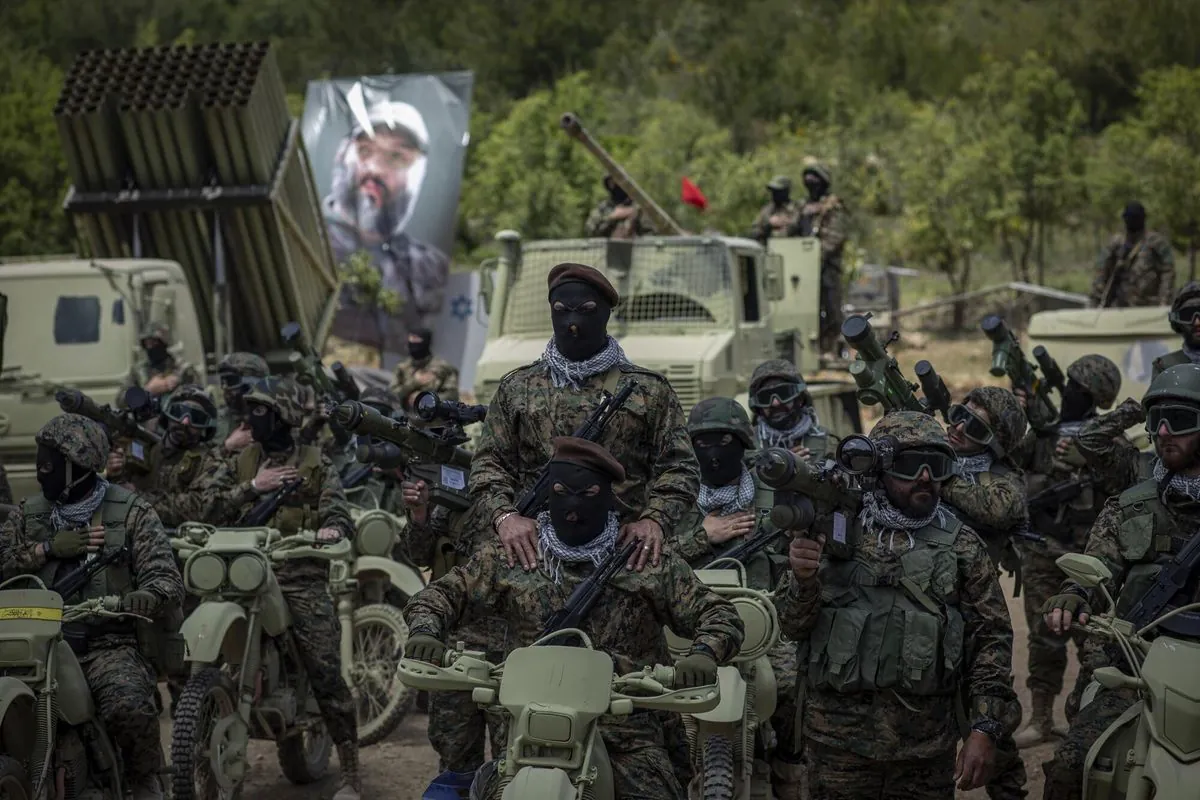The Israel-Hezbollah conflict has reached a critical point, with Israeli officials issuing stern warnings that could potentially lead to a full-scale war. This escalation comes amidst a surge in cross-border attacks between the two adversaries.
Benjamin Netanyahu, Israel's Prime Minister, has pledged to take "whatever action is necessary" to neutralize threats along the northern border. This statement echoes similar rhetoric used prior to Israel's military operations in Gaza last year.
Hezbollah, a Lebanon-based militant group founded in 1982, has intensified its attacks on Israeli targets. The organization recently launched a significant assault on a northern Israeli air base, marking one of its deepest strikes since hostilities escalated in October 2023.
In response, Israel has conducted numerous strikes on Hezbollah positions in Lebanon. The Israeli Defense Forces (IDF) claim to have targeted hundreds of Hezbollah sites since September 20, 2024. These actions have resulted in civilian casualties and displacement on both sides of the border.
The international community has expressed concern over the escalating situation. U.S. and EU officials have called for de-escalation, emphasizing the need for diplomatic solutions. John Kirby, White House national security spokesman, cautioned that a full-fledged war might not be in Israel's best interests.
Hezbollah, which receives substantial support from Iran, has developed a significant military capability over the years. The group is estimated to have tens of thousands of fighters and maintains a sophisticated arsenal of rockets and missiles.
Recent Israeli operations have dealt severe blows to Hezbollah's leadership and infrastructure. On September 21, 2024, an Israeli airstrike in Beirut killed Ibrahim Aqil, a high-ranking Hezbollah commander. This attack resulted in significant civilian casualties and property damage.
"It is an act of war against the people of Lebanon, Lebanon's sovereignty. It is a declaration of war."
The ongoing conflict has had a profound impact on civilians in both countries. In Israel, residents near the border have experienced frequent rocket attacks, with some expressing frustration over the government's handling of the situation. Meanwhile, in Lebanon, the strikes have caused extensive damage and loss of life.
As tensions continue to rise, the United States has issued warnings to its citizens in Lebanon, urging them to leave the country due to the unpredictable nature of the conflict. The situation remains volatile, with both sides seemingly prepared for further escalation.
The international community faces a significant challenge in preventing a wider regional conflict. As diplomatic efforts continue, the civilians caught in the crossfire hope for a peaceful resolution to this long-standing dispute.
